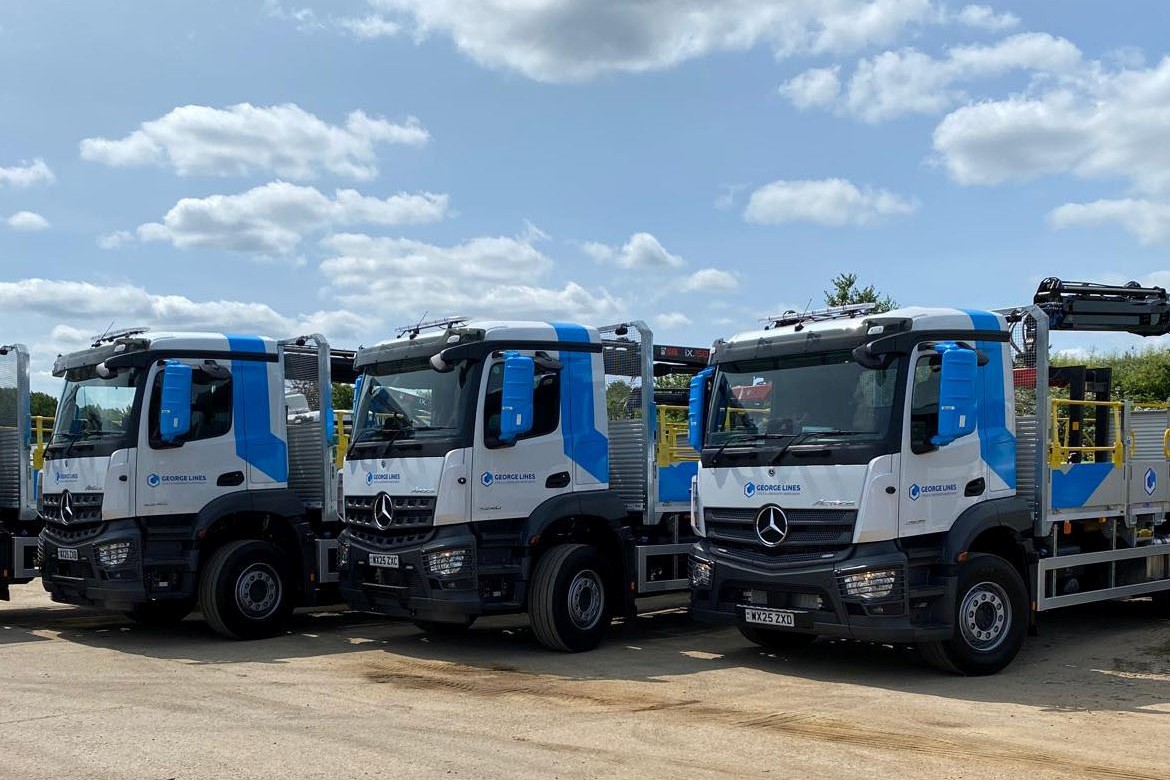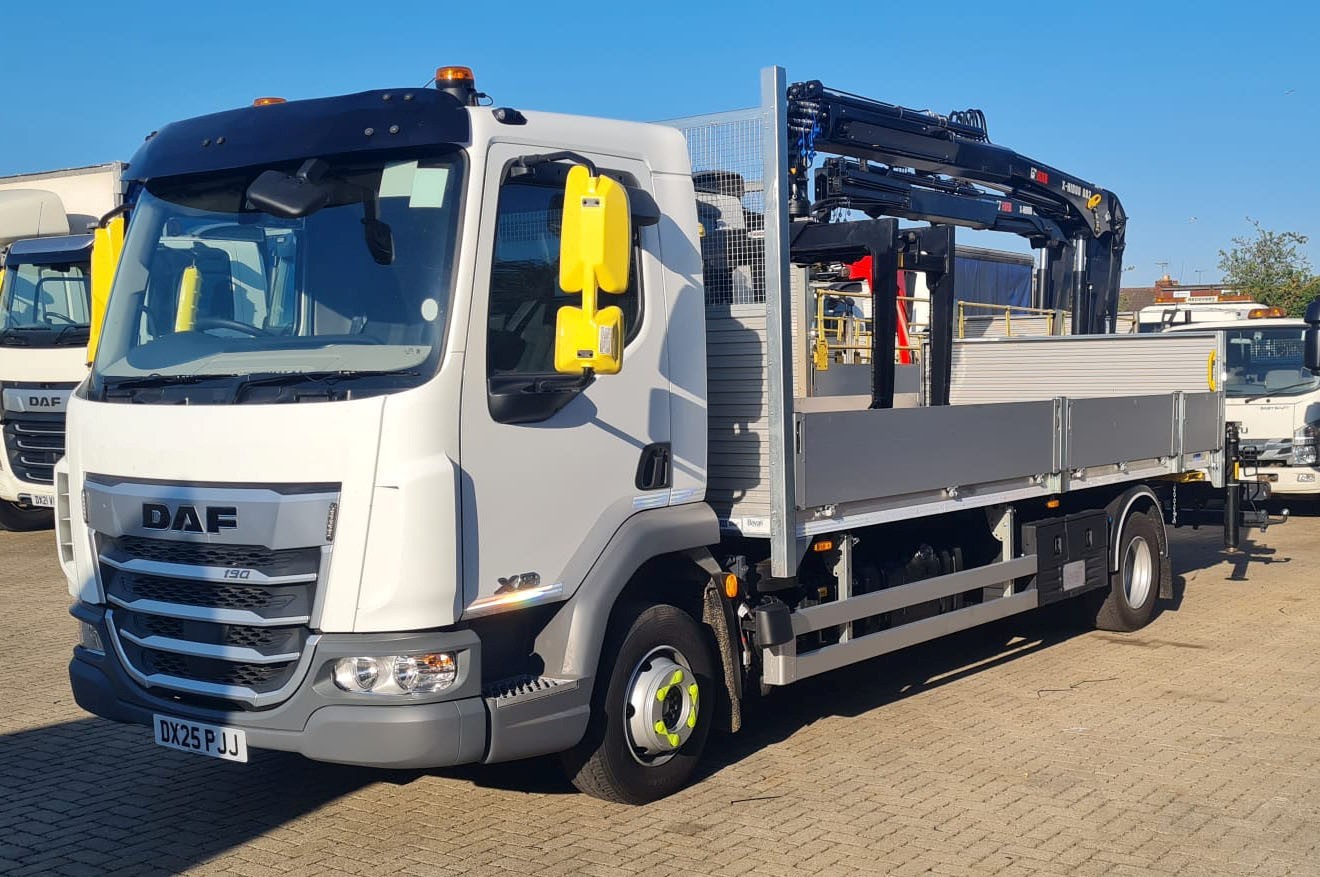
Tim Houghton, Managing Director of FVTH, offers his insights into the primary components of operational costs for an HGV fleet and highlights how merchants can control these expenses.
Part of any builders’ merchant’s remit is an HGV fleet to deliver the goods out to customers. Managing the fleet is an intricate process and understanding the main costs is essential for fleet managers to optimise operations, ensure profitability and maintain high service standards. Many will partner with their vehicle supplier, and this is where invaluable assistance and knowledge can combine.
Fuel Costs & Choice
With alternative fuels now on the horizon, the choice of fuel is a big question. With the confusion out in the market, the lack of specific direction from government and manufacturers, and a truly credible alternative to diesel we currently need to focus on ICE engines and diesel.
Indeed, fuel is one of the most significant operational costs for any HGV fleet — it can be as much as 40% of all costs. Fluctuations in prices can have a dramatic effect on a fleet’s overall expenses therefore monitoring fuel prices and implementing effective fuel management strategies can lower costs:
Route Optimisation: Using routing software to minimise distances can help reduce fuel consumption. Shorter, more efficient routes ensure that fuel costs are kept to a minimum.
Driver Training: Educating drivers on fuel-efficient driving practices, such as maintaining steady speeds and avoiding unnecessary idling, can lead to substantial savings.
Regular Maintenance: Keeping vehicles in good condition also enhances fuel efficiency. Regular checks on air filters, tyre pressure, and engine performance all contribute.
Maintenance and Repairs
A critical aspect of operational costs, HGVs require regular servicing to ensure they operate efficiently and comply with safety regulations. Areas to consider are:
Scheduled Maintenance: Regular maintenance is essential and can prevent more costly repairs, while extending the lifespan of vehicles. Simple things, including oil changes, brake replacements and tyre rotation can’t be overlooked.
Unscheduled Repairs: Unexpected breakdowns aren’t always avoidable and can lead to significant costs and, more importantly, downtime. A well-planned maintenance schedule can help reduce the frequency of these unplanned repairs.
Parts and Labour: The cost of parts can vary widely depending on the vehicle’s make and model. Labour costs for skilled mechanics can also add up quickly.
Insurance
An essential cost for HGV fleets, however premiums can vary based on several factors including:
Driver Experience: Fleets with experienced drivers may benefit from lower rates.
Fleet Size: Larger fleets often have more negotiating power when seeking competitive quotes.
Technology: Ensuring that your fleet utilises the latest technology such as cameras can reduce insurance costs dramatically.
Shop around: And also consider the total cost of ownership beyond just premiums, including deductibles and coverage limits.

Driver Salaries and Benefits
Human resources can be one of the largest expenses. Key considerations include:
Competitive Salaries: Attracting and retaining skilled drivers requires offering competitive pay and benefits.
Training Programmes: Investing in regular training for drivers not only improves safety but can also lead to increased efficiency and reduced turnover rates.
Compliance Costs: Ensuring compliance with regulations, such as driver hours and health checks can add cost, but ensure retention.
Depreciation
The depreciation of HGVs is an important consideration in overall operational costs. As vehicles age, their resale value decreases, and this needs to be included in any financial calculations. Factors affecting depreciation include:
Mileage: Higher mileage typically leads to faster depreciation.
Maintenance History: Well-maintained vehicles retain their value better than those that are neglected.
Market Demand: Changes in market demand for specific types of vehicles can also impact depreciation rates.
Fleet managers need to account for depreciation when calculating the total cost of ownership (TCO) for their vehicles. If working with a fleet partner such as FVTH — and using leasing as a financial model — these factors are usually covered.
Fleet Management Software
Investing in fleet management software has become the norm over the last decade. When used properly, these systems can help streamline operations and reduce costs. Tracking fuel consumption, scheduling maintenance, monitoring driver behaviour and optimising routes are just some of the areas that can be covered and when used well, such software can save time and maximise efficiency.
Leasing companies are often partnered with a fleet management software company to manage their own fleet, and this can be useful for their customers — giving a total technology package with the vehicle. Although there may be upfront costs associated with implementing software, the long-term savings nearly always justify the investment.
Compliance and Regulatory Costs
HGV fleets must comply with numerous regulations, including those related to safety, emissions, and labour laws. For example:
Permits and Licenses:Costs related to O Licences for vehicles over 3.5t gvw and also for obtaining necessary permits for operation in certain urban areas.
Environmental Compliance:Meeting emissions targets can require investment in cleaner technologies or retrofitting existing vehicles. This is particularly relevant when delivering into city areas, where new legislation — such as DVS (Direct Vision Standards) in London — is appearing on a regular basis.
The intricacies of running a fleet do not get less as the years go by, and understanding and managing operational costs for an HGV fleet is essential for ensuring profitability and efficiency. Fleet managers need to focus on the key areas above to identify opportunities for cost savings and implementing robust management practices and leveraging technology can pave the way for a successful and sustainable HGV operation.
As the logistics and transportation sectors continue to evolve, staying ahead of operational costs will remain a critical challenge for fleet managers and working in collaboration with a transport expert such as FVTH can often ensure best use of time resources and minimise costs.
For more information on the services provided by FVTH, use the shortcode www.rdr.link/mbs007












